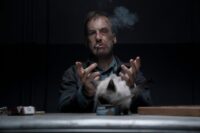Each month, dozens of new films are added to the Criterion Channel. While the rich selection of feature-length classic and independent films obviously gets a lot of well-deserved attention, I wanted to shine a little light on some of the short films. I believe that shorts should get a lot more attention than they typically do—they are breeding grounds of experimentation and non-traditional storytelling, and often are important outlets for marginalized voices.
In March, the slate of short films includes collections of films by early pioneers Georges Méliès and Charlie Chaplin, a collection highlighting Hawaiian filmmakers, and an album film by Solange. I watched every short film added to Criterion Channel this month, and have chosen to highlight some of my favorites below. The list is totally subjective, and I would still recommend watching as many of the films as you can.
While this article is exclusively focusing on films that are newly added to Criterion Channel in March, I’m also keeping track of all of the short films I watch in monthly Letterboxd lists, whether on Criterion Channel or elsewhere. I’ve listed the streaming service that I watched them on, with the films that I talk about in this article marked in the notes with two asterisks. Feel free to follow me and the lists on Letterboxd and reach out to me on Twitter if you want to discuss any of the films!
Man Rots from the Head (2016, 16 minutes), dir. by Janicza Bravo
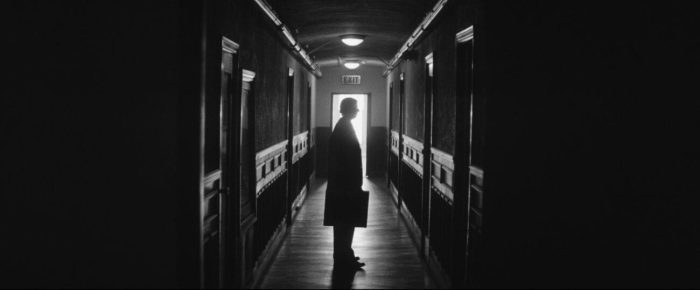
Okay, so this one is kind of cheating because this short was added to Criterion Channel in September, but it is being highlighted this month as part of the “Short + Feature” series, and I make the rules! I love how much of an understatement Letterboxd’s blurb for Man Rots from the Head is: “A salesman on a bum route runs in to [sic] an odd lot.” The film is one of the most bizarre things that I’ve seen recently, and last month I watched shorts about a plastic bag narrated by Werner Herzog and Roberto Rossellini’s disembodied torso.
Michael Cera stars as a traveling salesman named Sydney Ward. Ward wanders through some sort of purgatory-like apartment complex in an attempt to sell kitchen knives. The short emulates a much earlier era in film—it is shot in black and white, has a jazz score, and features 1940s-era hair and clothing styles (one of my first notes was “Is this Mank?).
These elements by themselves are obviously not very bizarre, but the people he encounters along the way definitely are. At one point, Cera and one of his potential customers recount their bizarre dreams to one another. Non sequiturs abound in his conversations, which are also often laced with innuendo and biblical quotations. Early in Ward’s misadventures, there’s a very particular scene that I won’t spoil here, but is definitely one of the most grossly and uncomfortably memorable scenes in recent memory.
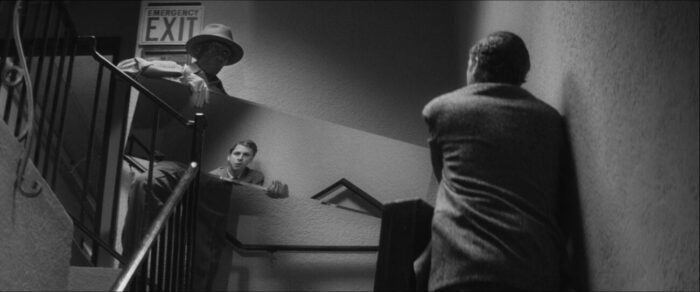
That said, the faux-1940s aesthetic does contribute to the weirdness, but mostly in conjunction with the other parts. The hallucinatory quality of the film is in stark contrast with the very era-specific hair, clothing, and cinematography. Additionally, the jazz music that helped set the scene becomes more and more abstract and eerie as Ward continues to meet people.
Outside of exclusively being weird (although I would have likely still enjoyed it if that was the case), the short is also at points very funny. Undoubtedly the funniest is towards the end, where there is what can only be described as a reverse kidnapping involving a potential reference to The Godfather, a hilarious parody of “leave the gun, take the cannoli.”
The Floorwalker (1916, 29 min.), dir. by Charlie Chaplin
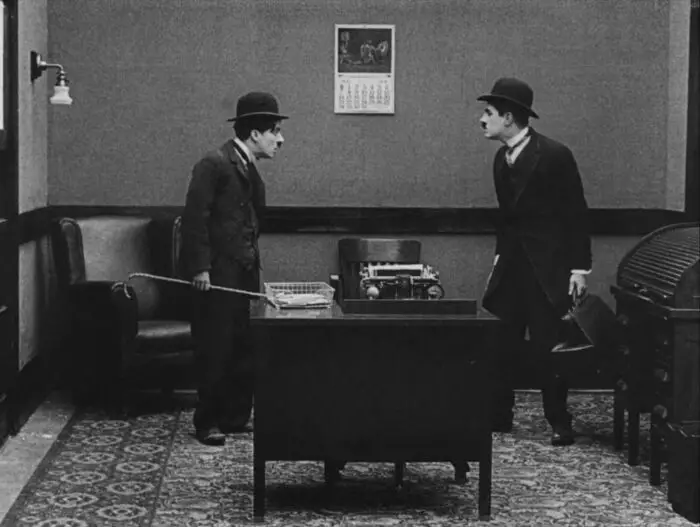
As mentioned above, the channel added collections of shorts by Georges Méliès and Charlie Chaplin. While it was interesting to watch films from this nascent era in the history of cinema, I also didn’t always find a lot to write about with these films. Yes, there were fascinatingly inventive practical special effects in the Méliès films, but also cinematic pace literally hadn’t been invented yet.
Cinema had already come a long way just a decade later, as these early Chaplin shorts demonstrate. Of these, The Floorwalker was the one that I enjoyed the most. A Chaplin look-alike working as the floor manager for a department store has embezzled $80,000 (almost $2 million in 2021) with the store’s general manager. Meanwhile, the real Chaplin comes into the store and is generally an agent of chaos. The real Chaplin comes face-to-face with his double, and the pair decide to switch places to throw off the detectives that are after both of them. The switcheroo leads to all sorts of shenanigans, including a lot of issues navigating escalators.
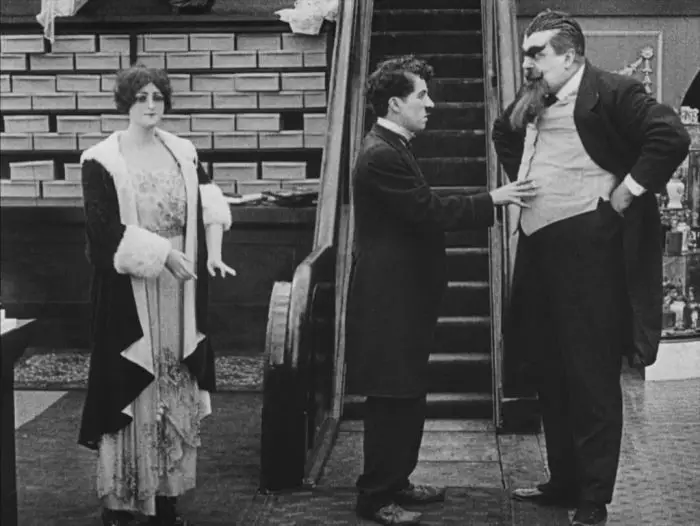
I’ll admit that I had never really watched too many Chaplin films. I’d only seen The Great Dictator and City Lights, so the roughly 6 hours of shorts added to Criterion Channel represent about two-thirds of my Chaplin experience. It’s really amazing to see Chaplin’s Tramp character’s physical idiosyncrasies so well-developed this early in his film career. The comedy and brilliance of the short isn’t limited to escalator madness and other big physical comedy beats; there are also some wonderfully quick and subtle moments, like one moment where several otherwise outwardly upstanding customers casually shoplift merchandise while the workers are distracted by Chaplin.
One of the joys of diving into the Chaplin films was discovering recurring Chaplin actor Eric Campbell, who was an absolute mammoth of a man and sported the single most impressive fake beard and eyebrow combination I have ever seen. This short may not be the best showcase of him, but he immediately stands out. Campbell tragically passed away in a car crash at the age of 37, and all 11 of his released films are included in this collection. His presence is so unique that I quickly picked up that he was acting in the majority of the shorts, and was inspired to look into his life and career. While I haven’t gotten to it yet, Criterion also added a documentary about Campbell’s life called Chaplin’s Goliath that I’m looking forward to watching.
Lāhainā Noon (2014, 15 min.), dir. by Christopher Kahunahana

To be honest, I could have written this entire article on Criterion Channel’s Hawaiian collection. It is an incredibly beautiful and heartfelt set of films, and already is one of my favorite collections on the channel.
The first short I watched was Lāhainā Noon. As explained in the short, a Lāhainā Noon is a traditional Hawaiian superstition about a moment that happens once a year for one minute when the sun passes so directly overhead that no one casts a shadow (apparently it actually happens twice a year, but that’s neither here nor there). As two radio hosts exposit, “the sun rests on the brain. They believe that in this one minute, a person’s shadow can crawl back into his ears, and because of that he has a lot of mana [spiritual power].”
The audience is introduced to characters in three different scenes: a woman who is is caretaking for her ex-husband, warning him as he fishes of incoming waves and reluctantly providing him with sex, an old man who uses a wheelchair and whose house is invaded by a pigeon, and a young boy who is roaming the streets because he is excited by the garbage trucks.
As the Lāhainā Noon approaches, the trio begins to act strangely, as if the sun and heat are starting to get to them. The soundtrack intensifies, pulling the audience into the mystical space that the characters are entering. All three characters approach critical moments in their lives. Whether these moments were choices, fate, accidents, or a mixture of all three, is left up to the viewers interpretation, although they are at least partially aided by their suddenly independent shadows.
The scenes display the magic and potential present in the banality of everyday life. None of the three protagonists woke up that day expecting something significant to happen, including in the moments leading up to the Lāhainā Noon, but for better or worse (in at least one case, potentially much worse) all three lives were changed after being touched by magic. The film’s mesmerizing use of pace, cinematography, and soundtrack allows us to briefly share in that magic as well.
The Moon and the Night (2018, 20 min.), dir. by Erin Lau
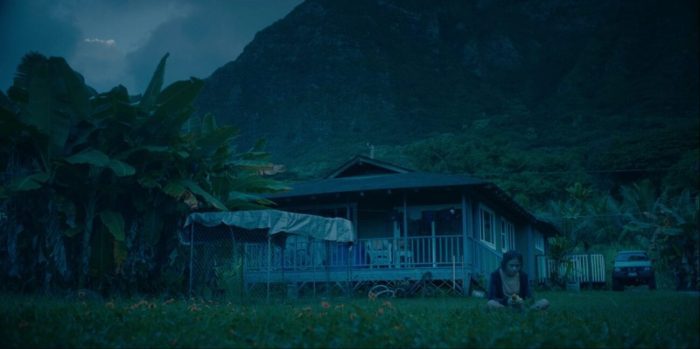
Like several of the shorts in the Hawaiian film collection, The Moon and the Night focuses on the relationship between a parent and their child. The short begins with a teenage girl named Mahina sitting alone in front of the ocean with her dog Po. The scene changes, and the girl is completing a job application by lantern light. It’s not immediately clear why she’s using a lantern or who the application is for, but she noticeably pauses when she reaches “the box” that asks if the applicant has been convicted of a felony within the past seven years. When her father David arrives home, we find out that he has apparently been entering Po into dog fights. The pair are struggling for money, and he had initially told his daughter that they were going to fight for a short time to get them back on their feet.
Despite her father’s irresponsibility and malfeasance, it’s clear that the pair do still love and care about each other, and there are some genuinely tender moments between them. Unfortunately, these moments are fleeting and are consistently undercut by her father’s inability to make good choices. At one point he gets drunk during the day, forcing his daughter to leave school to go pick him up. At another point, a cute dinner at a restaurant between the two is interrupted by David’s friends, and David essentially abandons his daughter to hang out at their table. Of course, the ultimate bad decision is David’s continual infatuation with dog fighting as an easy fix to their financial problems.
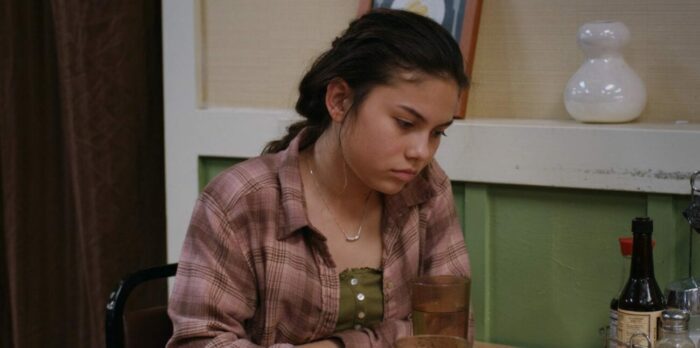
The final straw comes when David secretly enters Po into a final match, with disastrous consequences. Mahina is rightfully pushed past her point of tolerance and confronts her dad, while David is finally forced to see the emotional trauma his irresponsibility is causing his daughter. Bella Shepard does an incredible job playing Mahina, especially for a young actress. There is a shot during the restaurant scene that holds on her face as it slowly morphs from happiness to emotional withdrawal to loneliness. You can tell right away that Mahina has lived some version of this scene countless times. Shepard’s deft navigation through a range of emotions is something special to watch.
Beauty is not generally considered to be dissonant, but there is a definite incongruity between the hardships of Mahina’s life and the dazzling backdrop of the Hawaiian landscape. There are several moments when Mahina’s loneliness is juxtaposed by a sweeping landscape shot. While the short ends somewhat ambiguously, The Moon and the Night is still another beautiful entry into the collection.
Kalewa (2018, 17 minutes), dir. by Mitchel Viernes
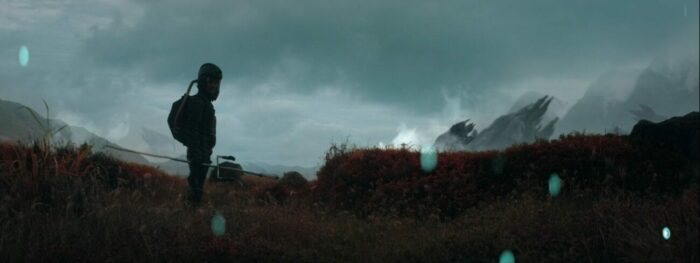
Kalewa is a breathtakingly beautiful and personal sci-fi short. It is the year 2043, and astronaut Kainoa Kalewa is seven years into a 15-year space mission in deep space. At the beginning of the short, he becomes stranded when his transport crashes. Kalewa’s artificial intelligence companion Alexa Mavis lets the audience know that the crash was very unusual, especially because the transport just underwent maintenance.
The narrative alternates between Kalewa’s time on the planet trying to complete his mission and a flashback to his final night on Earth. The stunning sci-fi landscapes make way for the equally meaningful emotions of family going through a tremendous amount of change. Not only is the family preparing to lose Kalewa for 15 years on a very dangerous mission, they also recently lost their matriarch. Kalewa’s departure so close to his mother’s death has led to a rift between him and his father, and it’s unclear if they will be able to make amends before the mission.
At times, the short plays with the audience’s plot expectations. Mavis’s confusion over the cause of the crash sets up the audience to expect a discovery or revelation that doesn’t come. I also think that the short subverts the audience’s initial expectations about the outcome of Kalewa’s final meeting with his father. The end result is a heartbreakingly lovely portrait about family, humanity, and forgiveness that is even more gorgeous than the sci-fi landscape it takes place in.
Closing
This is just a taste of the newly added short films on Criterion Channel in March! What were some of your favorites? Was there a filmmaker whose filmography you’re excited to dive deeper into? Last month I was excited to dive deeper into some of Guy Maddin’s films, since his Lynchian sensibility is right up my alley. This month, I’m looking to watch some more of Janicza Bravo (Man Rots from the Head Down) for pretty much the same reason. I’m also looking forward to watching Chaplin’s Goliath to learn more about Eric Campbell. Let me know in the comments or on Twitter, and I’ll be back next month to look at some more short films!


